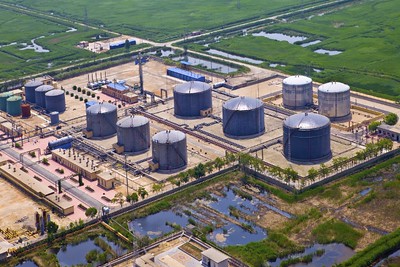In a surprising turn of events, oil prices have witnessed a remarkable 2% surge, nearly reaching a 10-month high. This sudden jump has sent shockwaves through the energy market, raising questions about its underlying causes and potential consequences. The primary driver behind this unexpected price hike? OPEC’s grim predictions of tightening supplies.
Understanding the Oil Price Surge
- OPEC’s Influence: The Organization of the Petroleum Exporting Countries (OPEC) is known for its significant influence on global oil prices. Comprising 13 major oil-producing nations, OPEC plays a crucial role in setting production quotas and, subsequently, oil prices. Their latest announcement has sent ripples across the industry.
- Supply and Demand Dynamics: Oil prices are inherently tied to the fundamentals of supply and demand. When demand surpasses supply, prices tend to rise. OPEC’s prediction of tightening supplies has instilled fear in the market, making investors and speculators nervous about potential shortages.
- Geopolitical Tensions: Geopolitical factors often exert immense pressure on oil prices. Conflicts, sanctions, and political instability in key oil-producing regions can disrupt supplies and contribute to price spikes. It’s essential to monitor these events closely when analyzing oil price movements.
The Impact on Global Markets
- Consumer Costs: As oil prices increase, consumers can expect higher costs at the gas pump and in various industries heavily reliant on petroleum products. This may result in a ripple effect throughout the economy, affecting prices of goods and services.
- Investor Sentiment: The recent surge in oil prices has piqued the interest of investors and speculators. Traders will closely monitor the situation, as it could present lucrative opportunities for profit in the commodities market.
- Energy Transition: High oil prices can accelerate efforts to transition to cleaner and more sustainable energy sources. It makes alternative energy options more appealing and may prompt governments and businesses to invest in renewable technologies.
OPEC’s Role in the Oil Market
OPEC’s ability to influence oil prices highlights the organization’s crucial role in shaping global energy dynamics. As a group representing major oil-producing nations, OPEC can adjust production levels to maintain desired price levels. However, this power is not without its challenges, as internal disputes and external factors can complicate their decision-making process.
Conclusion
The recent 2% surge in oil prices, approaching a 10-month high, serves as a stark reminder of the volatility and intricacies of the global energy market. OPEC’s predictions of tightening supplies have raised concerns about potential disruptions and their impact on consumers and industries. As we continue to navigate these uncertain times, staying informed about oil market developments is crucial for businesses, investors, and individuals alike.












